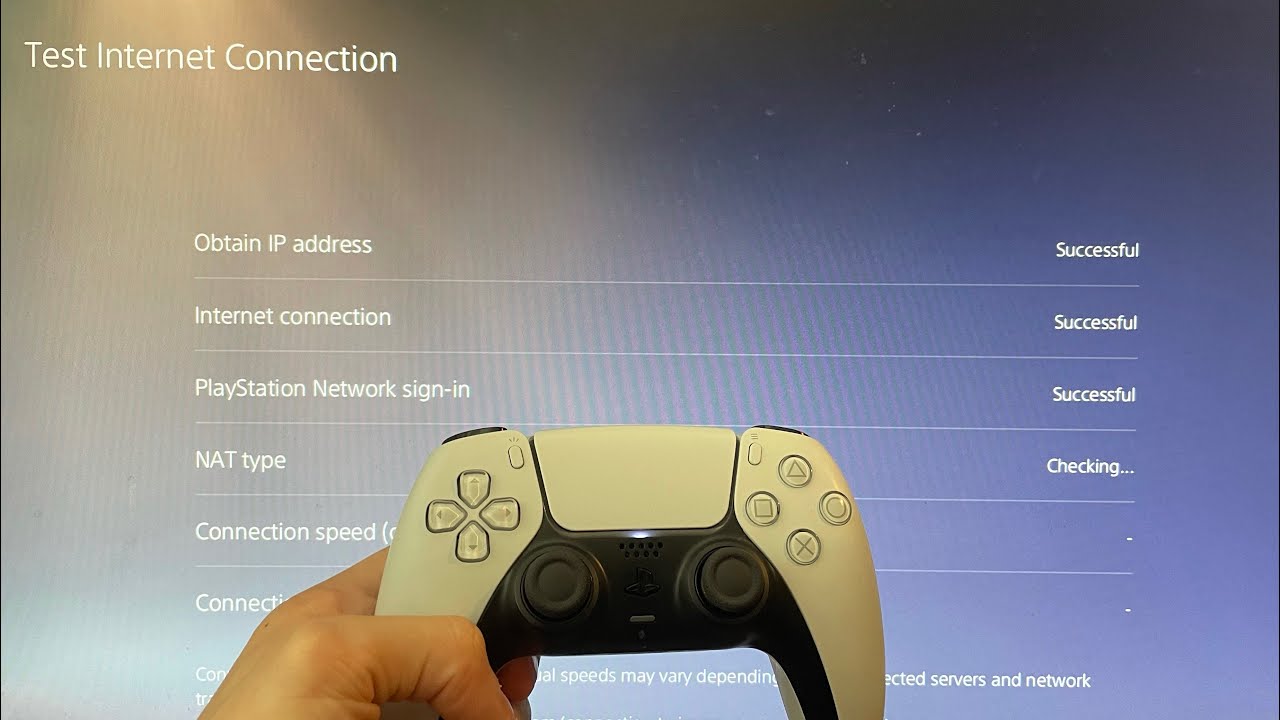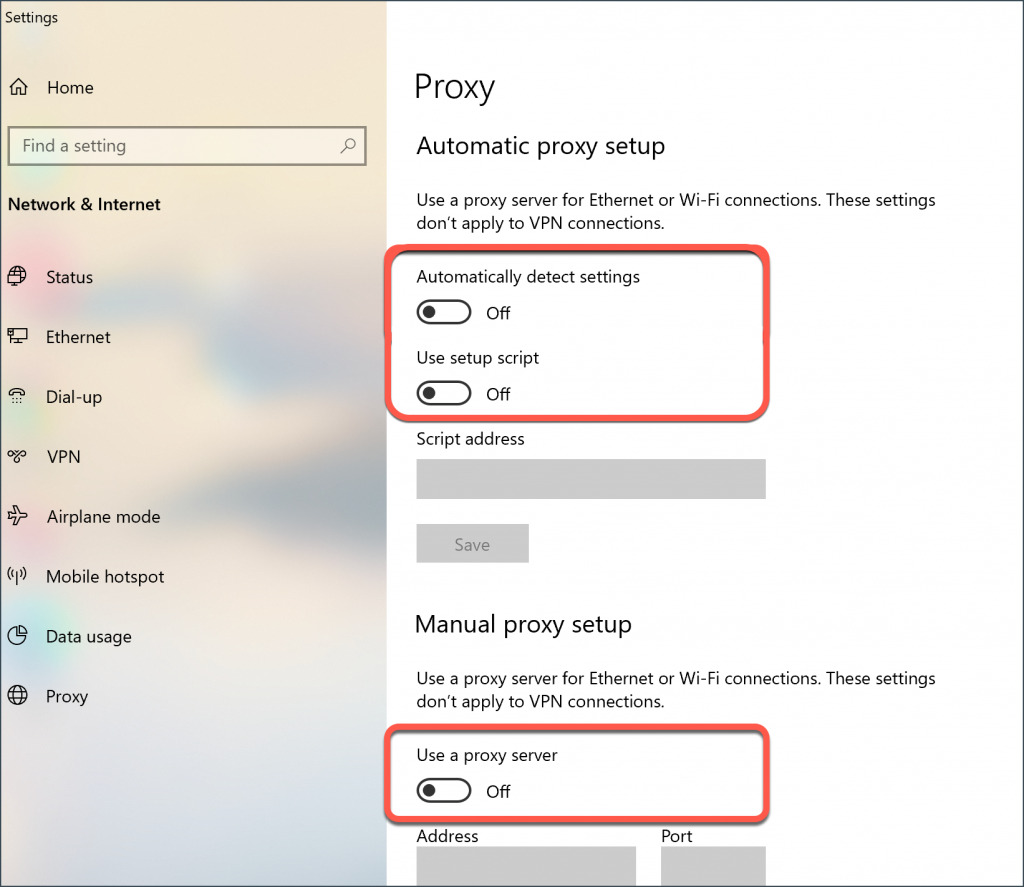Introduction
Welcome to the digital era where social media platforms have become an integral part of our lives. Facebook, being one of the most popular and widely used social networking sites, allows people to connect with friends, share content, and stay updated. However, there may be instances where accessing Facebook directly is restricted due to geographical or network limitations. Fortunately, there is a solution: using a proxy server.
A proxy server acts as an intermediary between your device and the internet. It functions by forwarding your requests to websites through its own IP address, thus hiding your actual IP address and enabling you to access blocked content. In simple terms, a proxy server works as a middleman, allowing you to surf the web anonymously and bypass any restrictions imposed by your network or location.
There are multiple reasons why one might need to use a proxy server to open Facebook. Perhaps you are in a region where Facebook is blocked or restricted, such as a school or workplace. Maybe you want to protect your online privacy and prevent Facebook from tracking your activities. Whatever the reason may be, using a proxy server can provide a solution.
When it comes to finding a proxy server to use with Facebook, there are several options available. You can choose from web-based proxies, browser extensions or add-ons, and even virtual private networks (VPNs). Each option has its own advantages and considerations, so it’s important to choose the one that suits your needs best.
In this article, we will explore different methods on how to open Facebook using a proxy server. We will discuss the steps involved in using a web proxy, browser extension or add-on, as well as a VPN. Additionally, we will provide tips to enhance your Facebook experience while using a proxy server.
So, if you’re ready to regain access to Facebook and enjoy seamless browsing, let’s dive into the world of proxy servers and discover the methods that can help us open Facebook effortlessly.
What is a Proxy Server?
A proxy server is an intermediary server that acts as a bridge between your device and the internet. It receives requests from your device and forwards them to the appropriate websites on your behalf. The websites then send the requested data back to the proxy server, which then relays it back to your device. This process allows you to browse the internet anonymously and access content that may be blocked or restricted.
A proxy server operates by masking your actual IP address and replacing it with its own IP address. This helps in protecting your identity and ensures that your online activities remain private. By hiding your IP address, a proxy server also allows you to bypass any geographical restrictions imposed by websites or networks. For example, if Facebook is blocked in your country or region, using a proxy server can help you access it without any issues.
There are different types of proxy servers available, including web-based proxies, dedicated proxies, and residential proxies. Web-based proxies are accessible through a web browser, without requiring any additional software installation. Dedicated proxies are private servers that you can lease or purchase for your exclusive use. Residential proxies utilize IP addresses from residential connections, providing a high level of anonymity.
Proxy servers offer several benefits, aside from allowing you to access restricted content. They can enhance your online security by acting as a buffer between your device and the websites you visit. Proxy servers can help protect you from hackers, malware, and other online threats by filtering out malicious content before it reaches your device.
Furthermore, proxy servers can help you speed up your browsing experience. As the proxy server caches data from the websites you visit, subsequent requests for the same data can be served directly from the cache, reducing the load on the website’s server and improving loading times.
In summary, a proxy server acts as an intermediary between your device and the internet, allowing you to browse the web anonymously and access restricted content. It offers increased online security, anonymity, and can even improve your browsing speed. Now that we have a clear understanding of what a proxy server is, let’s explore how to use it to open Facebook and enjoy unrestricted access.
Why Use a Proxy Server?
There are several compelling reasons to use a proxy server when accessing Facebook or any other online platform. Let’s explore some of the key advantages:
1. Bypass Geographical Restrictions: Many countries and organizations impose restrictions on accessing certain websites, including social media platforms like Facebook. Using a proxy server allows you to bypass these restrictions by hiding your IP address and making it appear as though you are browsing from a different location. This enables you to access Facebook, even if it is blocked in your current location.
2. Maintain Online Privacy: When you access Facebook directly, your IP address is exposed. This means that your online activities are traceable back to your location. By using a proxy server, your actual IP address is hidden, making it more difficult for others to track your online activities. This helps protect your privacy and ensures that your browsing remains anonymous.
3. Enhance Security: Proxy servers act as a buffer between your device and the websites you visit. They can help protect you from malicious content, such as malware or phishing attempts, by filtering out potentially harmful elements. Additionally, proxy servers can encrypt your data, making it more secure when transmitted over the internet. This is especially important when accessing sensitive information on Facebook, such as personal messages or financial details.
4. Speed up Browsing: Proxy servers can also help improve your browsing experience by caching data from websites. When you request a certain piece of content, such as a Facebook page, the proxy server may already have a cached version of it. This means that the proxy server can serve the content directly from its cache, reducing the load on Facebook’s servers and improving loading times. This can result in a faster and more efficient browsing experience.
5. Access Blocked Content: In addition to Facebook, proxy servers can be used to access other blocked or restricted content on the internet. Whether you want to watch geo-restricted videos or access websites that are blocked in your region, a proxy server can provide a simple and effective solution.
By using a proxy server to open Facebook, you can take advantage of all these benefits. Whether you are looking to enhance your online privacy, bypass restrictions, or improve your browsing speed, a proxy server can be a powerful tool to help you achieve these goals.
Finding a Proxy Server to Use with Facebook
When it comes to finding a proxy server to use with Facebook, there are several options available. Here are a few methods you can explore:
1. Web-based Proxies: Web-based proxies are perhaps the simplest and most accessible option. These proxies can be accessed through a web browser without the need for any additional software installation. There are numerous web-based proxy services available online, offering various features and server locations. Simply search for “web proxy” in your preferred search engine, and you will find a wide range of options to choose from.
2. Browser Extensions or Add-ons: Another convenient option is to use browser extensions or add-ons that provide proxy functionalities. These extensions can be installed in popular browsers such as Google Chrome or Mozilla Firefox, and they often come with user-friendly interfaces that allow you to quickly toggle the proxy settings. Look for reputable extensions like “Proxy SwitchyOmega” or “Foxxie” to add proxy capabilities to your browser.
3. Virtual Private Networks (VPNs): VPNs offer a more comprehensive solution for accessing Facebook and other blocked content. VPNs create a secure and encrypted connection between your device and a remote server, effectively masking your IP address and routing your internet traffic through the server. Many VPN providers allow you to choose server locations from around the world, giving you the flexibility to access Facebook as if you were browsing from a different country. Popular VPN services include NordVPN, ExpressVPN, and CyberGhost.
4. Proxy Lists: If you prefer a more manual approach, you can find proxy server lists on various websites. These lists contain IP addresses and port numbers of available proxy servers. However, it is important to note that the reliability and security of these servers may vary, so proceed with caution and choose reputable sources.
When selecting a proxy server, consider factors such as server location, connection speed, and reliability. It is also important to ensure that the proxy server you choose supports HTTPS connections to maintain the security of your data. Additionally, be aware of any usage limitations or potential fees associated with certain proxy services.
Ultimately, the method and proxy server you choose will depend on your specific needs and preferences. Whether you opt for a web-based proxy, a browser extension, or a VPN, finding the right proxy server will allow you to access Facebook and enjoy unrestricted browsing no matter where you are.
How to Open Facebook Using a Proxy Server
Now that we understand the importance of using a proxy server and have explored different options to find one, let’s dive into the steps on how to open Facebook using a proxy server. The process may vary depending on the method you choose, so let’s look at the three most common approaches:
1. Using a Web Proxy:
- Start by finding a reliable web-based proxy. You can search for “web proxy” in your preferred search engine to find a list of available options.
- Visit the web proxy’s website and enter the URL of Facebook (www.facebook.com) in the provided field.
- Click on the “Go” or “Browse” button to access Facebook through the proxy server.
- You may be presented with an intermediary webpage that asks you to verify that you are a human by completing a CAPTCHA. Follow the instructions and complete the verification process.
- Once verified, you should be able to access Facebook through the web proxy. Keep in mind that some features or functionality may be limited when browsing Facebook via a proxy server.
2. Using a Browser Extension or Add-on:
- Install a reputable proxy extension or add-on in your preferred browser. You can find these extensions in the official extension stores for popular browsers.
- Configure the proxy settings within the extension. This may include specifying the proxy server address and port number.
- Activate the proxy by toggling the extension’s button or accessing its settings within the browser’s toolbar.
- Once the proxy is activated, visit Facebook as you normally would, and the browser extension will handle the proxy redirection behind the scenes.
- Remember to deactivate or disable the proxy when you no longer need to use it, as it may impact your browsing experience for other websites.
3. Using a VPN:
- Subscribe to a reputable VPN service and install their application on your device.
- Launch the VPN application and login with your credentials.
- Select a VPN server location from the available options. It is advisable to choose a server located in a region where Facebook is accessible.
- Connect to the selected VPN server and wait for the connection to establish.
- Once connected, you can open your web browser and visit Facebook as usual. The VPN will route your internet traffic through the chosen server, effectively masking your IP address and unblocking any restrictions.
Regardless of the method you choose, it is important to remember to use reputable and trusted proxy servers or VPN services. This ensures the security and privacy of your data while accessing Facebook.
Now that you are equipped with the knowledge on how to open Facebook using a proxy server, it’s time to explore these methods and regain access to the world of social networking, no matter where you are.
Using a Web Proxy
One of the easiest and most accessible ways to open Facebook using a proxy server is by using a web proxy. Web proxies allow you to access websites through their own servers, acting as intermediaries between your device and the website you want to visit. Here’s how you can utilize a web proxy to access Facebook:
- Start by finding a reputable web proxy service. There are numerous web-based proxies available online, so it’s essential to choose one with a good reputation and reliable performance. You can search for “web proxy” in your preferred search engine to find a list of available options.
- Once you’ve identified a web proxy, visit its website.
- Look for a search bar or field on the web proxy’s site. In this field, enter the URL of Facebook (www.facebook.com).
- Click on the “Go” or “Browse” button to initiate the request.
- The web proxy will now process your request and establish a connection with Facebook on your behalf.
- Depending on the web proxy, you may be redirected to an intermediary webpage that asks you to verify that you are a human by completing a CAPTCHA. Simply follow the instructions provided and complete the verification process.
- Once verified, you should be able to access Facebook through the web proxy. However, please note that certain features and functionality may be limited when using Facebook via a proxy server.
Using a web proxy offers a simple and convenient way to bypass restrictions and access Facebook. However, it’s important to be aware that web proxies have limitations. They may not support all website features, such as video playback or interactive applications, due to the complexities of proxying certain types of content. Additionally, some web proxies may impose usage restrictions, such as limited bandwidth or time limits, so be mindful of these limitations.
It’s also crucial to select a reputable web proxy service that prioritizes the security and privacy of your data. Look for web proxies that support HTTPS connections to ensure that your information remains encrypted and secure. Additionally, consider reading user reviews and doing some research to ensure that the web proxy you choose has a reliable track record.
Using a web proxy can be an effective solution for accessing Facebook when faced with geographical or network restrictions. Explore different web proxies available and find the one that suits your needs, enabling you to enjoy seamless browsing and connect with friends on Facebook despite any restrictions in place.
Using a Browser Extension or Add-on
If you prefer a more streamlined and user-friendly approach to accessing Facebook through a proxy server, using a browser extension or add-on can be an excellent option. These extensions integrate directly into your web browser and provide proxy functionalities, making it easy to toggle the proxy settings as needed. Here’s how you can use a browser extension or add-on to open Facebook using a proxy server:
- Start by choosing a reputable proxy extension or add-on that is compatible with your preferred web browser. Some popular options include “Proxy SwitchyOmega” for Google Chrome or “Foxxie” for Mozilla Firefox.
- Visit the official extension store for your web browser and search for the chosen proxy extension by name.
- Install the extension by following the provided instructions. Once installed, the extension should appear in your browser’s toolbar or extensions menu.
- Click on the icon of the proxy extension to access its settings or configuration page.
- Within the extension’s settings, you will find options to configure the proxy server address and port number. Obtain this information from a reliable proxy server source.
- Enter the proxy server details into the extension’s settings and save your changes.
- Activate the proxy by toggling the extension’s button or through the provided interface.
- You should now be able to open Facebook in your browser and access it through the configured proxy server. The extension will handle the redirection of your web traffic automatically.
Using a browser extension or add-on offers the advantage of easy proxy configuration and control within your web browser. You can enable or disable the proxy with a single click and make adjustments to the proxy server settings as needed. This flexibility allows you to switch between proxy servers or turn off the proxy when you no longer need it.
When choosing a browser extension or add-on, ensure that you select one from a reputable developer or a trusted extension store. Read user reviews and check the ratings to gauge the extension’s reliability and security features. It is essential to prioritize user privacy and data protection, so look for extensions that support secure HTTPS connections.
Keep in mind that browser extensions and add-ons may have limitations, such as compatibility issues with certain websites or limited functionality compared to other methods like VPNs. However, for straightforward browsing and accessing Facebook through a proxy server, using a browser extension or add-on can be an efficient and convenient option.
Now that you know how to use a browser extension or add-on, go ahead and install one that suits your browser and proxy server preferences. By doing so, you can easily open Facebook and enjoy unrestricted access while maintaining control over your proxy settings.
Using a VPN
If you’re looking for a comprehensive and secure solution to open Facebook using a proxy server, using a Virtual Private Network (VPN) is an excellent option. VPNs create a secure and encrypted connection between your device and a remote server of your choice, allowing you to browse the internet with enhanced privacy and access content without restrictions. Here’s how you can use a VPN to open Facebook:
- Subscribe to a reputable VPN service that offers servers in the locations you want to access Facebook from. Popular VPN providers include NordVPN, ExpressVPN, and CyberGhost.
- Download and install the VPN application onto your device. VPN applications are available for various operating systems, including Windows, macOS, iOS, and Android.
- Launch the VPN application and log in using your credentials.
- Within the VPN application, choose a server location. It is advisable to select a server located in a region where Facebook is accessible.
- Click on the “Connect” or similar button to initiate the VPN connection.
- Wait for the VPN application to establish a secure connection with the chosen server. This process may take a few moments.
- Once connected, the VPN will route your internet traffic through the selected server, effectively masking your IP address and encrypting your data.
- Open your web browser and navigate to Facebook. You should now be able to access Facebook without any restrictions or limitations.
Using a VPN offers several advantages when it comes to opening Facebook with a proxy server. VPNs not only hide your IP address but also encrypt your data, providing an additional layer of security. This helps protect your online privacy and ensures that your browsing activities remain private and anonymous.
Furthermore, VPNs offer a wide range of server locations to choose from. This allows you to access Facebook from different countries, granting you the ability to bypass geographical restrictions and experience Facebook as if you were browsing from those specific regions.
It is important to note that while VPNs offer enhanced security and privacy, they may slightly affect your internet speed due to the encryption process and the additional routing involved. However, reputable VPN providers strive to minimize any impact on speed, allowing you to enjoy a seamless browsing experience.
Before selecting a VPN, research different providers and compare their features, server networks, and privacy policies. Consider factors such as customer support, simultaneous device connections, and pricing. By choosing a reliable and trusted VPN service, you can confidently open Facebook through a proxy server and experience unrestricted access while maintaining your privacy and security.
So, get started with a VPN and enjoy the freedom of accessing Facebook from anywhere in the world, with the added security and anonymity that VPNs provide.
Tips for Using a Proxy Server with Facebook
Using a proxy server with Facebook can be a valuable tool in accessing blocked content and maintaining your online privacy. To make the most out of your proxy server setup and ensure a smooth experience, here are some essential tips to keep in mind:
1. Choose a Reliable and Fast Proxy Server: Selecting a reputable and high-performance proxy server is crucial. Look for providers with a good track record, positive user reviews, and a wide range of server locations to maximize your options for accessing Facebook and other blocked content.
2. Opt for HTTPS Connections: Whenever possible, use Facebook with an HTTPS connection. HTTPS encrypts your data during transmission, adding an extra layer of security. Ensure that the proxy server you choose supports HTTPS connections to maintain the privacy and confidentiality of your information.
3. Be Mindful of Security Risks: While proxy servers can provide anonymity and access to blocked content, it’s important to be cautious. Avoid entering sensitive information, such as passwords or credit card details, while using a proxy server. Instead, reserve such activity for a secure and trusted network.
4. Regularly Update Proxy Server Configurations: Proxy servers can change or become unavailable over time. Stay proactive by regularly updating your proxy configurations or exploring alternative proxy servers in case your current one becomes unreliable or blocked.
5. Test for Compatibility: Some proxy servers or configurations may not fully support all aspects of Facebook, such as multimedia content or certain features. Before relying heavily on a specific proxy server, test its compatibility with the features of Facebook that are essential to you.
6. Use Ad-Blocking Extensions: To enhance your browsing experience, consider installing ad-blocking extensions in your browser. These extensions can remove unwanted advertisements and improve page loading times when accessing Facebook through a proxy server.
7. Monitor Proxy Server Performance: Occasionally evaluate the performance of your chosen proxy server to ensure that it continues to meet your needs. Slow speeds, frequent disconnections, or limited server availability may indicate a need for a different proxy server or a switch to a more reliable connection method, such as a VPN.
8. Explore Other Proxy Methods: While web-based proxies, browser extensions, and VPNs are common options, don’t hesitate to explore alternative proxy methods that may better suit your requirements. Proxy methods can vary in terms of performance, ease of use, and available features.
9. Protect Your Login Credentials: Regardless of using a proxy server or not, ensure the security of your Facebook login credentials. Use strong, unique passwords and consider enabling two-factor authentication for an added layer of protection.
10. Stay Informed: Stay up to date with the latest news and developments in the realm of proxy servers and online privacy. This will help you make informed decisions about your proxy server setup and ensure that you’re taking advantage of the most effective and reliable methods.
By following these tips, you can optimize your experience of using a proxy server with Facebook. Enjoy the benefits of unrestricted access, enhanced online privacy, and seamless browsing while keeping your data secure and protected.
Conclusion
In a world where access to social media platforms like Facebook is often restricted or limited, using a proxy server can be a valuable tool to regain control and enjoy unrestricted browsing. Whether you choose a web-based proxy, a browser extension, or a VPN, these methods offer various benefits, including bypassing geographical restrictions, maintaining online privacy, and enhancing security.
Web-based proxies provide a simple and accessible approach, allowing you to access Facebook by entering its URL through a proxy server’s website. Browser extensions and add-ons offer a more streamlined experience by integrating proxy functionalities directly into your web browser, providing easy control over your proxy settings. VPNs, on the other hand, offer a comprehensive and secure solution, encrypting your data and routing it through a remote server, effectively masking your IP address and providing unrestricted access.
When using a proxy server, it’s important to choose reputable providers, prioritize HTTPS connections, and be cautious when entering sensitive information. Regularly updating proxy configurations, testing for compatibility with Facebook features, and monitoring server performance can also contribute to an optimal experience.
By following these tips and selecting the right method for your needs, you can open Facebook and navigate the platform seamlessly, regardless of geographical restrictions or network limitations. Whether you want to connect with friends, share content, or simply stay updated, utilizing a proxy server allows you to enjoy the full benefits of Facebook’s features and functionalities.
As technology continues to evolve, it’s essential to stay informed about the latest developments in proxy servers and online privacy. This will help you make informed decisions and adapt your proxy server setup to new challenges or opportunities that may arise.
Now that you have a comprehensive understanding of how to open Facebook using a proxy server, you can take control of your browsing experience, maintain your privacy, and enjoy unrestricted access to the world of social networking.

























